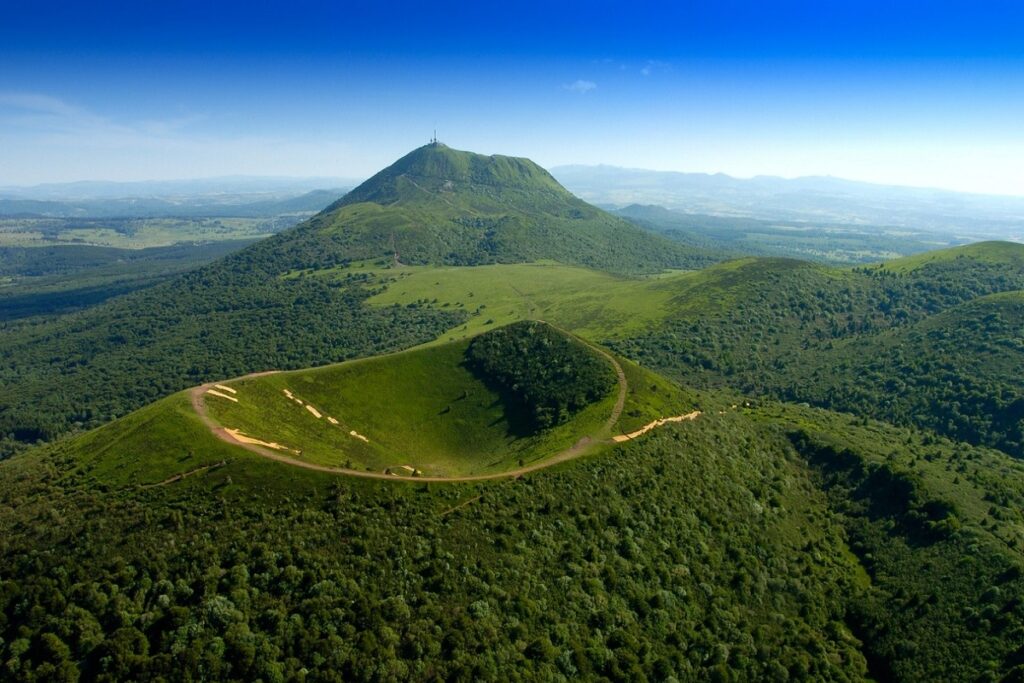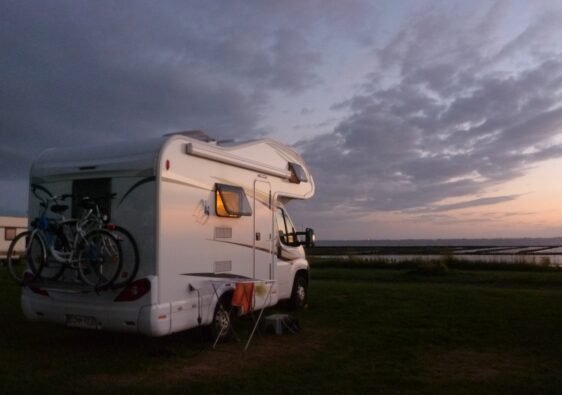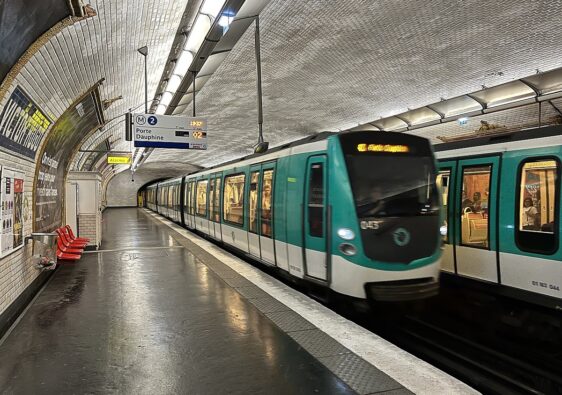For many people, setting off on an adventure with the bare minimum is a dream. Discovering the most beautiful natural sites in France and pitching your tent when night starts to fall is a dream for many of us. Unfortunately, you can’t go wild camping just anywhere in France. There are strict regulations and some places are simply forbidden. That’s what we’re going to find out in this guide.
What is wild camping in France?
The first thing you need to know about wild camping is that it is not the same as bivouac camping, and the two should never be confused. Wild camping is characterised by the fact that you sleep in a vehicle such as a camper van or van fitted out for the purpose, just about anywhere in the wild. It also involves staying in the same place for several days, rather like a traditional camper, but away from campsites.
Bivouac means sleeping in a portable tent or simply under the stars. It takes place in the middle of nowhere, far from nature, and generally lasts just one night in some places.
In some French national and regional parks, regulations are strict and bivouacs are only allowed. So before you set off, it’s important to find out exactly what type of trip you’re planning. If you’re planning to hire a van, you can be sure that you won’t be able to park where you want. If that’s what you’re looking for, I suggest you read my article on the best camping destinations in France.
So if you’re prepared to set off with the bare minimum and do without your usual comforts, you’re ready to discover the best spots for wild camping in France, or rather bivouac camping.
The 3 best places for wild camping in France
The Pyrenees National Park

Adventurers in search of the wilderness usually head for the Pyrenees National Park, making it the most visited national park in France. The reasons are simple enough: this mountain range is close to the sea and the ocean, so it’s quick and easy to change scenery. The weather is also milder throughout the year and, of course, the Pyrenees National Park is home to a huge number of hiking trails with a wide variety of landscapes.
Among the most famous are the Garvanie limestone massif, the Pic du Midi de Bigorre, Lac de Gaube and the Pic du Midi d’Ossau.
Bivouacs are permitted here, but not wild camping in motorhomes or converted vans. You can pitch a tent between 7pm and 9am, more than an hour’s walk from a road.
Auvergne Volcanoes Regional Nature Park

After the most-visited national park, we move on to the largest regional nature park in mainland France, the Auvergne Volcanoes. Covering almost 400,000 hectares, it is a benchmark for all hiking enthusiasts.
What particularly attracts you to this park are the volcanoes, of which there are 80 in the regional nature park, and which personally fascinate me.
Bivouacking is permitted here, but only under very strict conditions. You will need permission from the owners of the land on which you intend to pitch your tent. These owners may be private or public, and if you obtain permission, you will have to leave the site in the early hours of the morning. It is strictly forbidden to bivouac or light a fire on one of Auvergne’s volcanoes.
Armorique Regional Nature Park

Under certain conditions, you can also go wild camping in Brittany, France, in the Armorique Regional Nature Park. This park is one of the oldest in France, but also one of the most beautiful, like the region in which it is located. If you’re looking for cliffs, dense forests and the calm of the Atlantic Ocean to spend a night under the stars, the Armorique Regional Nature Park is the place for you.
It covers some 125,000 hectares, including the Crozon peninsula, where you’ll find some of the most beautiful beaches in France.
As with the Parc Naturel Régional des Volcans d’Auvergne, you’ll need to obtain permission from the landowner beforehand, which means you’ll need to organise your stay carefully. You need to be sure of arriving at your wild camping site on time at the end of your hike.
Other national and regional parks where you can bivouac in France
You can bivouac in these 3 French parks, which are my favourites, but also in other national and regional parks, provided you follow the rules I’ve already mentioned: ask for permission, respect the opening hours (9am to 7pm), stay away from roads and don’t put yourself in unnecessary danger. These parks are as follows:
- Vercors Regional Nature Park
- Mercantour National Park
- Ecrins National Park
- Cévennes National Park
What are the regulations governing wild camping in France?
Under French law, bivouacs AND wild camping are permitted wherever they are not prohibited. Here is the current list:
- Parc national des Calanques de Marseille
- Forêt d’Orient Regional Nature Park
- Vosges du Nord Regional Nature Park
- Cotentin Marshes Regional Nature Park
- Venin français Regional Nature Park
- Gorges du Verdon Regional Nature Park
- Monts d’Ardèche Regional Nature Park
More generally, unauthorised camping is prohibited in areas classified as “wooded areas to be preserved“; nature and site heritage protection areas; seashores; footpaths; places less than 200 metres from a drinking water supply point and places less than 500 metres from a “Historic Monument”.
To put it even more simply, you can generally bivouac in all national and regional parks, but you can’t camp in the wild. In any case, you should always check with the local authorities to find out what is specific to each area.
So now you know how to go wild camping in France. If you’d like to find out more about the most beautiful destinations in France, check out my road trip itineraries in France and where to go on holiday in France.




